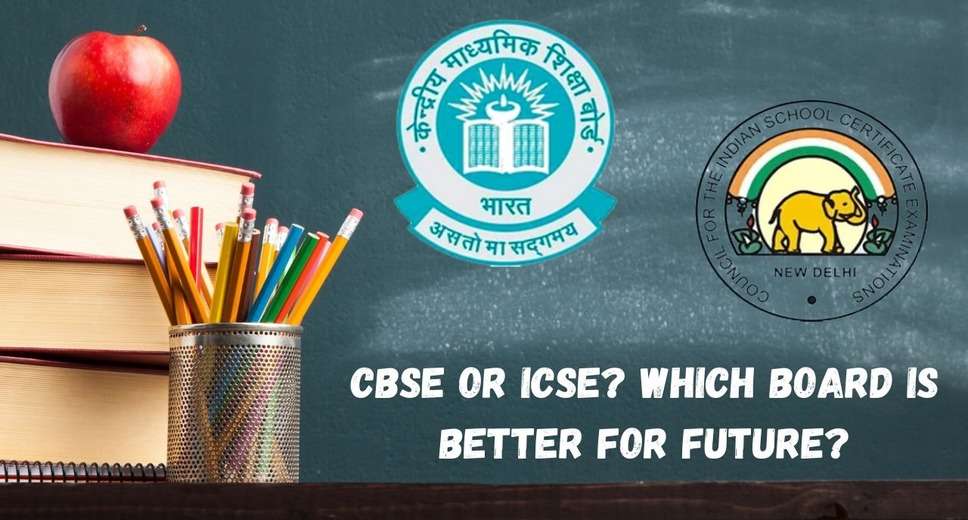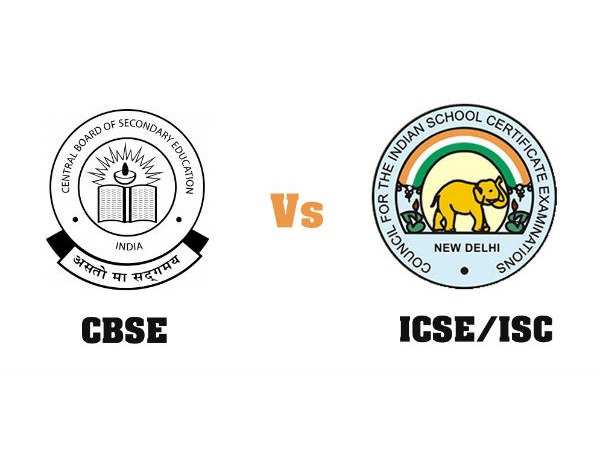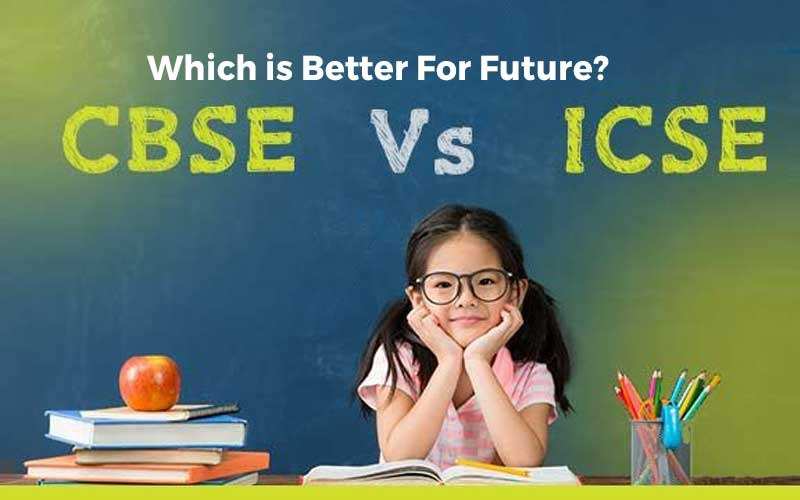Choosing the Right Path: CBSE vs. ICSE - Which Board Holds the Key to Your Future?
Choosing the right educational board for your child is a critical decision that can shape their future. In India, parents often face the dilemma of choosing between two prominent boards: the Central Board of Secondary Education (CBSE) and the Indian Certificate of Secondary Education (ICSE). Both boards offer unique advantages and cater to different educational philosophies. In this blog post, we will compare CBSE and ICSE to help you make an informed choice for your child's education.

Choosing the right educational board for your child is a critical decision that can shape their future. In India, parents often face the dilemma of choosing between two prominent boards: the Central Board of Secondary Education (CBSE) and the Indian Certificate of Secondary Education (ICSE). Both boards offer unique advantages and cater to different educational philosophies. In this blog post, we will compare CBSE and ICSE to help you make an informed choice for your child's education.

CBSE Board: Empowering Future Leaders
CBSE, short for the Central Board of Secondary Education, is one of India's most popular educational boards. It offers a comprehensive curriculum along with additional disciplines, preparing students for various competitive exams such as IIT JEE and NEET. Let's explore the key features of CBSE:
-
Curriculum: CBSE provides a well-structured national curriculum approved by the National Council of Education and Research Training (NCERT).
-
Examinations: The board conducts the All India Secondary School Examination (AISSE) and the All India Senior School Certificate Examination (AISSCE), which are widely recognized.
-
Scholarships: CBSE supports talent search exams and awards scholarships to deserving students.
-
Teaching Approach: CBSE emphasizes a well-organized syllabus, making it easier for students to grasp concepts.

ICSE Board: Fostering Comprehensive Learning
The Indian Certificate of Secondary Education (ICSE) board, administered by the Council of Indian School Certificate Examination (CISCE), is known for its comprehensive and challenging curriculum. Here's what you need to know about ICSE:
-
Curriculum: ICSE offers a more extensive and complex curriculum compared to CBSE, promoting detailed and application-based learning.
-
Examinations: After the 10th grade, ICSE transitions to the Indian School Certificate (ISC) for 12th-grade examinations, known for their rigor.
-
Scholarships: Unlike CBSE, ICSE doesn't provide scholarships to its students.
-
Teaching Approach: ICSE places a strong emphasis on project assignments, with internal evaluations accounting for 20% of the final grade.
Comparison Between CBSE and ICSE
Now, let's delve into a detailed comparison between the two educational boards:
-
Teaching Approach:
- CBSE: Focused on competitive exams, with a well-structured syllabus.
- ICSE: Emphasizes project assignments and application-based learning.
-
Scholarships:
- CBSE offers various talent search exams and scholarships.
- ICSE does not provide scholarships to its students.
-
Acceptance:
- Both boards are widely accepted, but ICSE credentials often receive more recognition abroad.
-
Marking Scheme:
- CBSE awards a total of 100 marks, with 50% for each term.
- ICSE relies on 80% external evaluations and 20% internal assessments.
-
Board Transfers:
- ICSE does not admit students from other boards in classes 10 and 12, requiring completion of 9th and 11th grades within ICSE.
Choosing between CBSE and ICSE is a significant decision that can influence your child's educational journey. Consider your child's learning style, aspirations, and long-term goals when making this choice. Both boards offer quality education, but they differ in their approaches and curriculum. Ultimately, the right board for your child depends on their individual needs and preferences. Make an informed decision to pave the way for your child's bright future.
